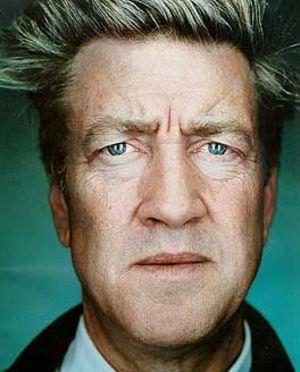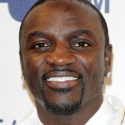How Old Is David Lynch? David Lynch Birthday
David Lynch was born on January 20, 1946 and is 78 years old now.
Birthday: January 20, 1946
How Old - Age: 78
David Lynch Death Fact Check
David is alive and kicking and is currently 78 years old.
Please ignore rumors and hoaxes.
If you have any unfortunate news that this page should be update with, please let us know using this form.
David Lynch - Biography
Biography by Jason Ankeny [-]From the beginning of his career, David Lynch quickly established himself as the Renaissance man of modern American filmmaking, an acclaimed and widely recognized writer-director as well as television producer, photographer, cartoonist, composer, and graphic artist. Walking the tightrope between the mainstream and the avant-garde with remarkable balance and skill, Lynch brought to the screen a singularly dark and disturbing view of reality, a nightmare world punctuated by defining moments of extreme violence, bizarre comedy, and strange beauty. More than any other arthouse filmmaker of his era, he enjoyed considerable mass acceptance and helped to redefine commercial tastes, honing a surrealistic aesthetic so visionary and deeply personal that the phrase "Lynchian" was coined simply to describe it.Born January 20, 1946, in Missoula, Montana, David Keith Lynch grew up the archetypal all-American boy. The son of a U.S. Department of Agriculture research scientist, he was raised throughout the Pacific Northwest, eventually becoming an Eagle Scout and even serving as an usher at John F. Kennedy's presidential inauguration. Originally intending to become a graphic artist, Lynch enrolled in the Corcoran School of Art in Washington, D.C., in 1963, falling under the sway of expressionist painter Oskar Kokoschka and briefly studying in Europe. By the early weeks of 1966, he had relocated to Philadelphia, where he attended the Pennsylvania Academy of Fine Arts and began his first experimentation with film.The violence and decay which greeted Lynch in Philadelphia proved to have a profound and long-lasting effect, as his work became increasingly obsessed with exploring the dark corners of the human experience. From his first experimental student film (1967's "moving painting" Six Men Getting Sick, onward, his vision grew more and more fascinated with the seedy underbelly of everyday life. He received an American Film Institute Grant and made The Alphabet, a partially animated 16 mm color film, soon after, but then turned away from the cinema to renew his focus on fine art. His next short film, The Grandmother, did not appear until 1970.In 1972, Lynch began work on his first feature effort, Eraserhead. A surreal nightmare borne of the director's own fears and anxieties of fatherhood, the film took over five years to complete, finally premiering in March 1977. An instant cult classic, it was also a tremendous critical success, launching Lynch to the forefront of avant-garde filmmaking. Eraserhead not only established Lynch's singular world view but also cemented the team of actors and technicians who would continue to define the texture of his work for years to come, including cinematographer Frederick Elmes, sound designer Alan Splet, and actor Jack Nance.The success of Eraserhead brought Lynch to the attention of Mel Brooks, who was seeking projects to produce besides his own comedies. He recruited Lynch to helm 1980's The Elephant Man, the tale of John Merrick. Complete with a cast including such celebrated talent as John Hurt, Anthony Hopkins, Anne Bancroft, and John Gielgud, the film marked Lynch's acceptance into the Hollywood mainstream, even netting an Academy Award nomination for Best Picture as well as a nod for Best Director.For a time, Lynch opted to advance his script Ronnie Rocket at Francis Coppola's Zoetrope Studios, but when this failed to materialize, he went to work for Dino De Laurentiis, adapting the Frank Herbert science fiction novel Dune. The first of Lynch's films to star actor Kyle MacLachlan, the 1984 big-budget effort was a commercial and critical disaster -- Lynch himself even disowned the project after it was re-edited for release without his consent.Lynch had agreed to make Dune for de Laurentiis in order to film 1986's Blue Velvet, a long-simmering tale exploring the dark underbelly of small-town life. Insisting upon complete artistic control, he made the picture for under seven million dollars, casting actors ranging from MacLachlan to model Isabella Rossellini to Dennis Hopper and Dean Stockwell, former stars whose popularity had suffered in recent years. The completed film was an unqualified masterpiece, a hypnotically violent creep show which earned Lynch his second Oscar nomination as well as boosting the careers of all involved.In 1990, Lynch mounted his most commercially successful work, the ABC television series Twin Peaks. A surrealist soap opera created in conjunction with former Hill Street Blues producer Mark Frost, Twin Peaks became a cultural phenomenon, spurred by the mystery of "Who killed Laura Palmer?," the series' central plot thread. Suddenly, Lynch was a cultural figure of considerable renown, a filmmaker perhaps more famous than any of his actors. His fame was bolstered when his fifth feature, 1990s hallucinatory road movie Wild at Heart, grabbed the Palme d'Or at the Cannes Film Festival.As quickly as the media had built Lynch up, however, they tore him down. Wild at Heart received mixed reviews from American critics, while Twin Peaks was scuttled off to a poorly suited Saturday-night slot, leading to its demise in early 1991. Two other Lynch-created series, the documentary anthology American Chronicles and the situation comedy On the Air, also met with premature deaths. In 1992, he released Twin Peaks: Fire Walk With Me, a feature-film prequel to the television series. An ambitious, fractured work featuring Sheryl Lee as the ill-fated Laura Palmer, the picture was savaged by critics, leaving a wounded Lynch to plot his next move. He spent the next few years away from the limelight.Finally, in 1997, Lynch resurfaced with the enigmatic Lost Highway, another experimental, dream-like effort that polarized viewers' responses. He enjoyed more renown in 1999 when The Straight Story was released at the Cannes Film Festival. The film, based on a true story, marked a departure from Lynch's previous subject matter; the simple tale of a man (Richard Farnsworth) who gets on his tractor and drives 350 miles to see his brother, it offered few of the dark undertones and twisted subtext that had come to be known as the director's trademarks.That notion would continue with 2001's Hollywood-set thriller-melodrama, Mulholland Drive. Like Twin Peaks, the project was originally developed with ABC as a series pilot; unlike Lynch's first foray into television, however, Mulholland was scrapped before it could make a prime-time premiere. Although Lynch tinkered with the two-hour pilot several times in an attempt to satisfy the network brass, they remained unsatisfied. The frustrated director then turned to European financing in order to sculpt a feature film out of his material. Premiering at the 2001 Cannes Film Festival, Mulholland garnered much acclaim, snagging Lynch the fest's Best Director award, and cementing his career resurgence.Lynch spent the next few years immersed in the world of digital video, first on his exclusive website -- members of which were allowed access to never-before-seen short films -- and then on the highly experimental feature Inland Empire. Crafted over a series of years using a light, mobile video camera and very few crew members, the film was Lynch's declaration of true artistic independence; the director himself heralded it as a breakthrough. The meandering, non-narrative, 3-hour opus, however, left critics and fans sharply divided as they tried to make sense of such disparate elements as a tortured, ghostly ingenue (played by Laura Dern), a Polish film crew, and Justin Theroux wearing a rabbit's-head mask. Dissatisfied with the response from possible buyers at the 2006 Cannes Film Festival, Lynch chose to distribute the film himself, even mounting his own Oscar campaign -- stationing himself on various L.A. streetcorners, no less -- for Dern. In the years that followed, the director continued to immerse himself in experimental video, with short subjects including Boat, More Things That Happened and Lady Blue Shanghai - each of which alternately beguiled and delighted longtime Lynch adherents.








